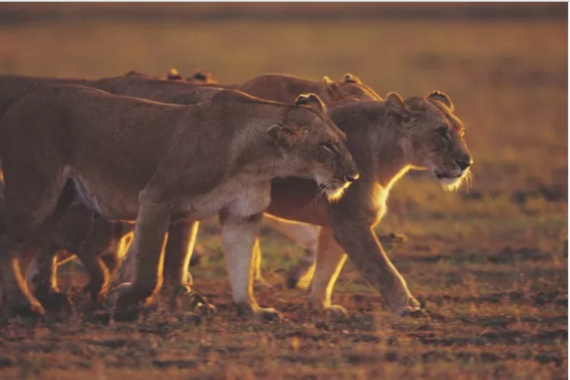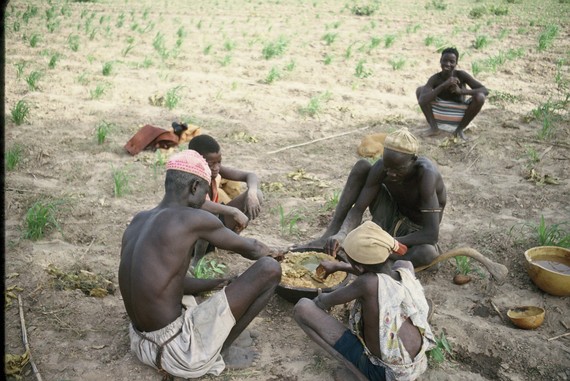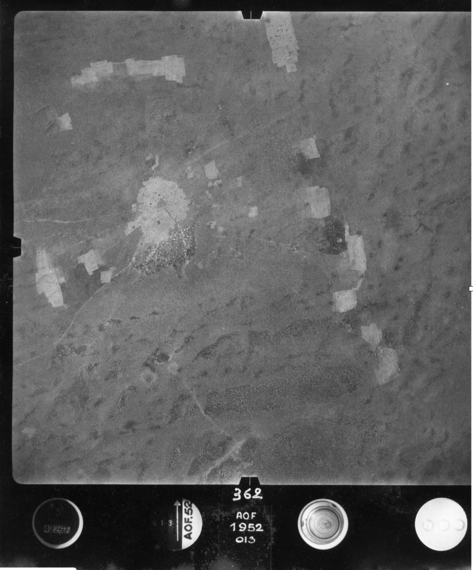This article has been submitted as part of the Natural Capital Coalition's series of blogs on natural capital by Camilla Toulmin, British economist, former Director and senior fellow of the International Institute for Environment and Development (IIED)
While philosophers can create progress in their fields with nothing more than brain, pencil and paper, an objective understanding of complex natural and social systems necessitates more than can be achieved by any single person. What is needed to advance our knowledge and to refine our policy in this field, is collaboration, and partnership.
First, between disciplines, so that the different tools, ideas and perspectives of the social and natural sciences can be more broadly focused on practical problems, much in need of solutions.
Second, between scales, as our world is an inter-locking system; so much so that changes to the troposphere, 12 miles above the Earth's surface, rebound on the prospects of micro-organisms nestled deep in the soil.
Third, between different actors and agencies. While it's true that government sets the wider direction and policy framework, our resources are used and managed by people, individually and collectively - on farms, across hillsides, in the oceans, in fact, on most of the planet's surface.
And, lastly, over generations of thought. You cannot hope to understand a system today, or predict where it might be tomorrow, if you haven't understood where it has travelled from.
My own work neatly illustrates these points. I am currently re-surveying a small village in the Sahel, the place where I first embarked on my doctoral fieldwork 35 years ago. In my work, I combine many different methods and disciplines, and rely on support from people all over the world. Researchers generally like to exchange ideas and new evidence, building a culture of sharing spanning the globe. I rely on this in my own work, as it helps me analyse what can be seen from aerial photos, compare trends in rainfall and crop yields, and learn how similar communities elsewhere have taken their own development in hand.
I have to work at multiple scales, understanding not only how the environment changes people, but also how people change the environment. National decentralisation policy has led to shifts in who exercises power and decision-making locally, while global market forces have turned these wide open sandy plains into a commodity to be bought and sold. For us to succeed in supporting local development, we need this extensive multifaceted understanding, from which to offer partnership to local people.
Gaining a livelihood in these drought-prone regions is uncertain, but people have survived and prospered here for many generations. Local farmers talk knowledgeably about how they play-off risks; by sowing millet with different growing cycles, and diversifying into sesame, maize and groundnuts for instance. I am talking with them about how they see the future, and ways to build greater resilience into their natural resource and farming systems. We apply our shared understanding of the changes they've witnessed over the last 35 years as the backdrop to aid reflections on the future. They're enjoying working with old aerial photos, and taking the black-and-white images in hand. The older men and women can point out who was farming each field as far back as the early 1950s.
The farmers and herders of this region face serious challenges ahead, as fertile land becomes scarcer, and rain falls in evermore intense storms. Even in the face of this, they can do much to manage their land, and diversify how they live in order to cope with this uncertainty. Some families continue to live in enormous domestic groups, made up of 100+ relatives, as a means to gain economies of scale, and share both assets and risks.
Many families here rely on the earnings of young men who migrate away for many months at a time. While a short-term solution, in order to prosper in the long term, people need sensible and supportive government. Government must provide stability though laws and institutions which secure rights for people and for the environment, and by investing in the public infrastructure needed to get goods to market.
I am engaging with people in local and national government, promoting the work that we do, and relaying the voices of villagers; facilitating conversations where they are able to tell their own stories.
This work is particularly important now, as the current government is handing out big areas of land to large scale agricultural enterprise; 20,000 hectares to a Chinese company for sugar-cane cultivation most recently.
However, new legislation is currently being introduced through parliament, bills that offer more secure rights to local people, as well as for local bodies which can both handle disputes, and register land. I am hoping that as farmers mobilise themselves and find common cause with neighbouring communities, they can press for ever-fairer deals when big investors loom large.
I hope to further understand these interlocked systems of natural and social capital, and believe this is possible; by combining disciplines, working at many scales, forging partnerships, and looking back in order to understand future options.
A global approach to learning and sharing is central to all such research enquiry. As we see unfold before us the extraordinary and troubling fall-out from the U.K. EU referendum result, I have ever greater concern for our natural environment, its care and conservation. While political intrigue and jostling for power offer short-lived rhetoric about how to generate jobs and livelihoods, we must keep sight of the longer term assets, on which our ultimate prosperity lies.
Collaboration across boundaries of all forms is vital to our shared understanding of the planet's complexity, where its thresholds and tipping points might lie, and how to manage and monitor change. It's therefore vital to unite and work together, regardless of the regulatory landscape, to solve the challenges that we all collectively face.
Disclaimer: Articles in this series are submitted by people who work in organizations who are part of the Natural Capital Coalition, or people who are involved in the natural capital space more generally, the views expressed here do not necessarily represent the views of The Natural Capital Coalition, other Coalition organizations, or the organization that employs the author.
Follow Camilla on Twitter: @camillatoulmin
Follow the IIED on Twitter: @IIED
Camilla Toulmin is a British economist and former Director of the International Institute for Environment and Development (IIED). Her career has focused on policy research about agriculture, land, climate and livelihoods in dryland regions of Africa. She became a senior fellow of IIED in late June 2015, and is Professor of Practice at the Lancaster Environment Centre, Lancaster University.
On 13th July 2016, The Natural Capital Coalition will launch a standardized framework for business to identify, measure and value their impacts and dependencies on natural capital. This 'Natural Capital Protocol' has been developed through a unique collaborative process; a World Business Council for Sustainable Development consortium led on the technical development and an IUCN consortium led on business engagement and piloting. The Protocol is supported by practically focused 'Sector Guides' on Apparel and Food & Beverage produced by Trucost on behalf of Coalition.
Keep up to date with the Natural Capital Coalition on Twitter: @NatCapCoalition
Keep up to date with our series on natural capital here.



